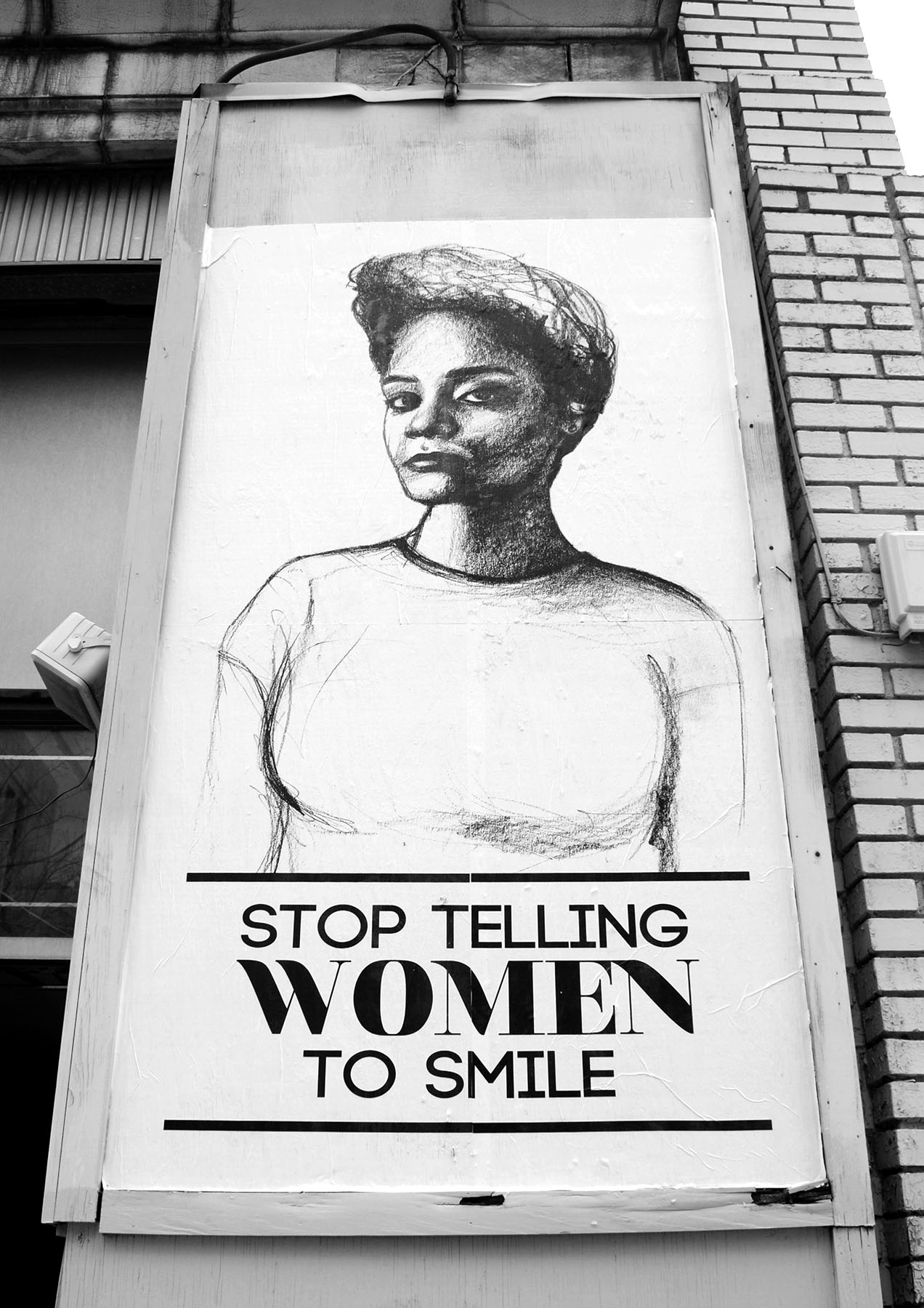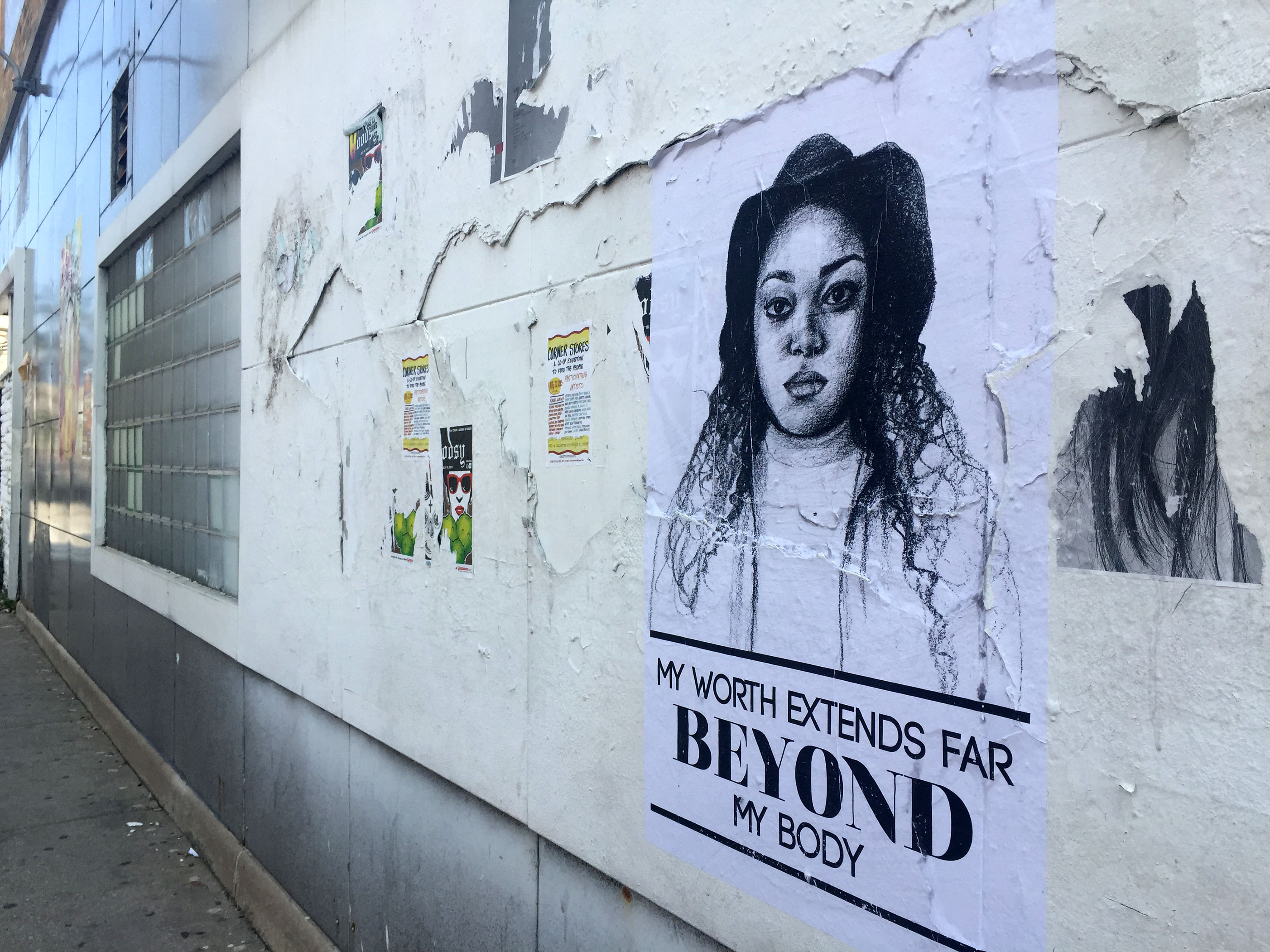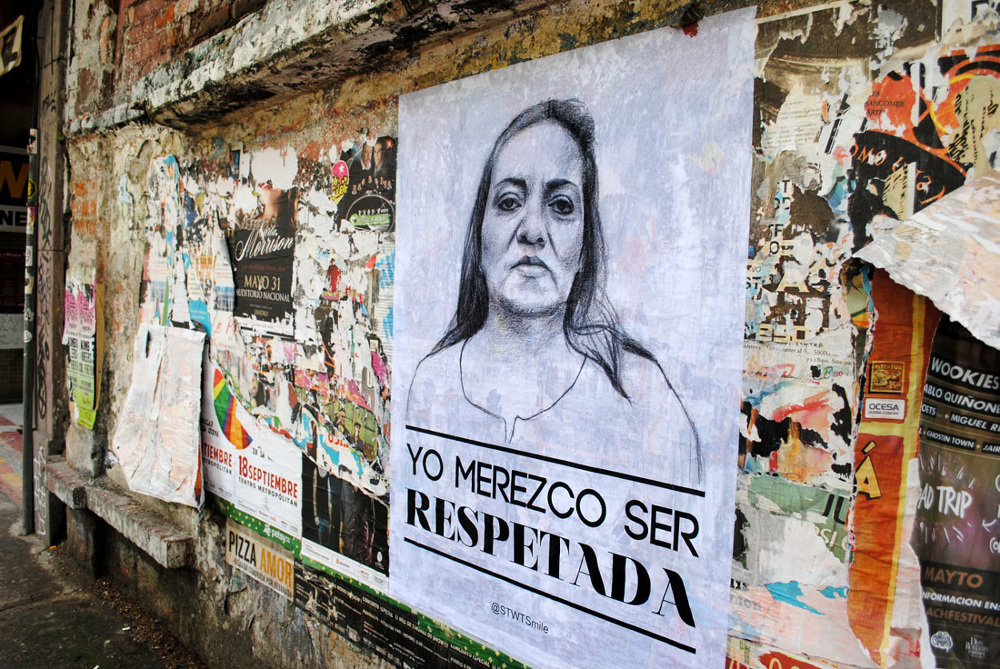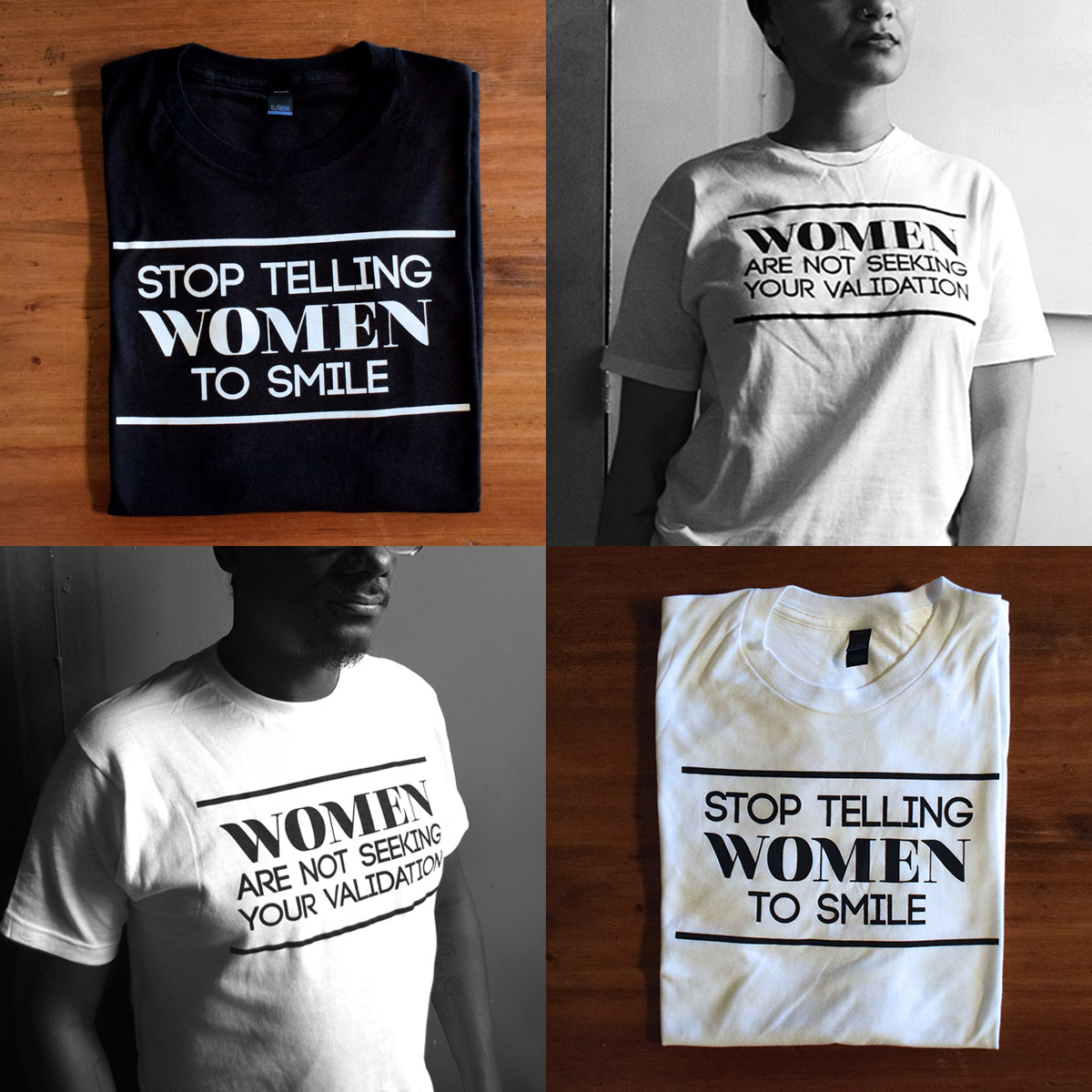Stop Telling Women to Smile is an interdisciplnary project that finalizes as public art. In this project, I interview women and non-binary people about their experiences with sexual harassment in public spaces. These interviews and photographs are then turned into drawings and posters that are places on outdoor walls.
“Stop telling women to smile” as a phrase represents a few things. One, it means exactly what it reads: stop telling women to smile. So often women and girls are instructed to change their facial expression for the comfort of men. To look nice, approachable, and pretty. Simply put, it is sexist. Even more, the command to smile sits on a spectrum of sexist interactions that happen to women in the public space. While it is not physically violent, its sexist nature has the potential to make women feel uncomfortable, sexualized, and patronized.
This work was transformative work for myself as a person and a professional. I opened up a new way of creating and approaching art. A new way of creating and being in community with a group of people over a shared cause. A new method of creating portrait based work and using the environment as not just a site for the work but an element of the work itself.





I created a line of shirts from this project. The first, the Stop Telling Women to Smile shirt, is a standard of this project and represents both a recognition of how women are treated in the streets as well as a direct command to stop this behavior. Not My Name and Women Are Not Seeking Your Validation are both texts from posters from the project.
Purchase shirts by clickin on the image below.
In 2019, Stop Telling Women to Smile the book was published by Seal Press. Writing this book was an intense and beautiful labor. In it, I discuss my own experiences with sexual harassment beginning and childhood and through my adult life. I interview 10 new women for book, ranging from cis to trans, masculine to feminine, with varying race, religion, and age.
Purchse the book here or request it at your local bookstore or library!

